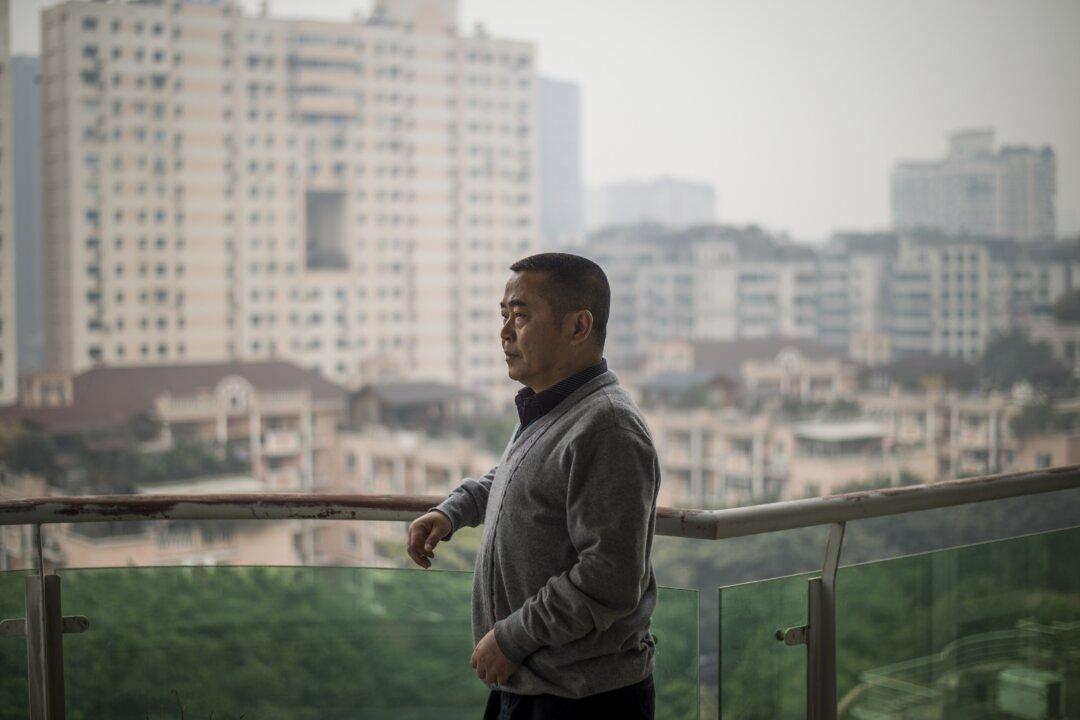The Chinese regime sentenced a dissident, who ran a website reporting on human rights abuses, to 12 years in prison for leaking state secrets.
Huang Qi, a citizen reporter, was sentenced on July 29 after being detained for two years. A closed trial was conducted in January.
His sentence is one of the most severe rulings against a dissident since Chinese leader Xi Jinping came to power in 2012.
The 56-year-old was found guilty of leaking state secrets and providing state secrets to foreign entities, according to a statement by Mianyang Intermediate People’s Court in southwest China’s Sichuan Province.
Through his website, 64 Tianwang, Huang reported on human rights concerns relating to groups targeted by the regime, including dissidents, petitioners, Falun Gong practitioners, and other suppressed faith groups in the country. His website is censored in China.
During the past two years, foreign officials and international human rights organizations have urged Beijing to release the prominent activist.
Huang’s 85-year-old mother, Pu Wenqing, has also repeatedly pressed for his release, but has been suppressed by the local government and police. Pu has said that her son’s health has worsened while in jail, and that he’s suffering from severe kidney problems.
Activism
Huang, an engineering graduate from Sichuan University, founded 64 Tianwang in the late 1990s, along with an organization called Tianwang Tracing Office, aimed to track cases of human trafficking by posting information about missing persons.His website, which posted uncensored political articles and reports on sensitive issues such as the victims of the Tiananmen Square Massacre, drew the ire of authorities.
In 2000, the Chinese regime shut down 64 Tianwang, although Huang soon re-opened it using a U.S.-based web host.
Huang was detained on June 3, 2000, one day before the anniversary of the Tiananmen Square Massacre. He was later sentenced in 2003 to five years in jail for “inciting subversion of state power.”
After his release, Huang continued to post information online on human rights issues, and in 2006, changed his organization into China’s first comprehensive human rights organization: China Tianwang Human Rights Service.
After the 2008 Sichuan earthquake, which claimed the lives of more than 87,000 people, including at least 5,300 students, Huang started investigating the shoddy construction of school buildings.
He was detained again in 2008 after campaigning for parents who lost their children in the earthquake, and was sentenced a year later to three years in jail for “illegal possession of state secrets.”
Following his release in 2011, he continued his advocacy until being detained again in November 2016.
Huang has won numerous awards for his work over the past two decades, including the RSF Press Freedom Prize in 2004 and 2016, and the Hellman-Hammett Grants in 2007.
In an August 2018 open letter addressed to Mianyang Intermediate People’s Court, Pu said her son was innocent, adding that his liver disease will cause him to “die in prison” if he isn’t treated soon.
Pu is currently being monitored by police after she met with diplomats from different countries to appeal for Huang’s release earlier in February.





